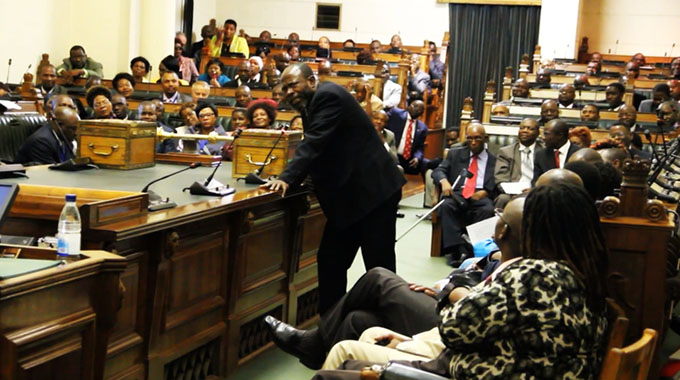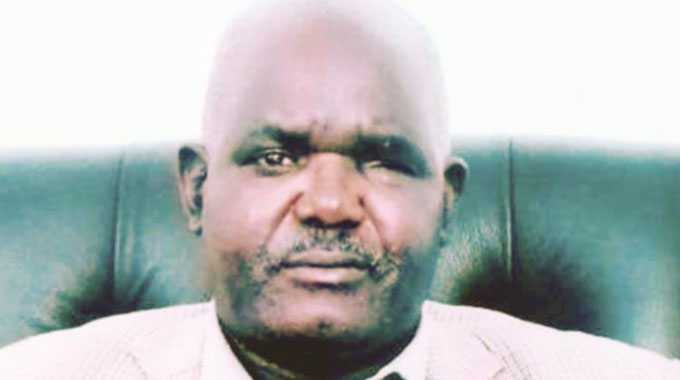Primary elections: Axis of democracy

Nick Mangwana View from the Diaspora
The biggest measure of a party’s internal democracy is primary elections. If one wants to know whether the harmonised elections will be a true reflection of the will of the people then people have to use the test run of the forthcoming Zanu-PF primaries.
If we are going to have acrimony in the Zanu-PF primaries then there is a likelihood of acrimony in the general elections themselves. We have had a history of tensions around our primaries because of the entitlements of some.
There was a time when those that fought for this country felt that they could not be contested and should be given a free berth because of that. That was wrong then. If anyone feels so now, they are still wrong. There are also now those that feel that they did a lot around November 2017 and, therefore, are entitled to some special treatment in recognition of that, they are wrong as well.
They did not fight for themselves and parliamentary seats or political positions are not spoils of conflicts.
The only way these people would be given these free berths is by imposing them as candidates to represent the party.
Now, we all agree that imposition of candidates is wrong. It should never be allowed. Jockeying and jostling for positions should not cause rifts or fissures within the party. This election should be about ideas and not who has personal resources more than others.
This is why the move by the Politburo that there should be joint meetings and for all candidates to campaign at those meetings was a stroke of genius.
It avoids negative campaigning and the generation of tensions within the party, which tend to go all the way to the general election itself.
It also avoids creating fissures within the party. But more importantly, it makes the election focus on substantive issues.
The thing is that in Zimbabwe people have struggled to deploy MPs in a more progressive way possibly because of poverty. This has made the job of a legislator quite unattractive to many honest people.
Imagine a situation where early in the morning there is a knock on the door whilst an MP is having breakfast with his family.
There is a woman towing their school going child who asks to see the MP. The MP is told that the child has been sent away from school because they could not afford the fees.
The MP digs into his own pockets and gives the woman money to pay fees for the term.
The next time it is another constituent in dire straits because there is sickness in their family and they have no money for medical treatment and the MP repeats this practised routine.
He goes back into his bedroom and writes a cheque or whatever else is done these days such as sending electronic money through the phone. These actions by both the legislator and the constituents are wrong.
Firstly, MPs are not paid enough to be able to use their income to supplement the financial needs of their constituents.
They should not be treated like charities. But if an MP turns these people away, then the likelihood is that he/she would be labelled as “useless”.
This is one of the things that lead to MPs being dishonest and corrupt. They cannot afford to buy a coffin for every constituent that dies in indigence.
But, there is an expectation that if they don’t buy the coffin at least they should feed the mourners.
It is unsustainable to expect them to afford this out of their paltry income. The reader may be asking themselves how this is related to primary elections. Well, it is. What prospective MPs running in the primaries are offering people has to be more substantive than giving freebies to both the needy and greedy.
Their role is to push Government to focus development into key areas in their constituency as well as focus policy into what addresses the needs that are raised by their constituents.
In our examples, when a constituent comes asking, citing that they have an issue with paying fees or medical bills, the MP should be able to address the actual problem and not put a band aid on the problem.
The issue that needs to be addressed is deeper than an individual constituent because what is afflicting one, is likely to be afflicting a much wider range.
So the MPs’ focus should be about how a people’s government addresses the needs of people who are typically in the situation represented by those who come to knock on the door.
Does the Government have in place a mechanism for relieving those who are socially deprived, who can’t afford medical care or school fees for the children?
Is medical care or education now a preserve of those with means only? The MP should be addressing these issues at a more global scale. But the woman whose child has been excluded for the fees has little interest in how the MPs would address these issues globally. They are more interested in the here and now of their personal issue.
This is the mindset that needs shifting in Zanu-PF primaries, which is now getting more developmental than prospective MPs being treated like donors leading to clear cases of vote buying than having a vision. This is because as candidates fighting for the party nomination are now addressing the same groups of people.
Offering food at the rally or some “incentives” in some clandestine way will begin to ebb away. We now expect all prospective nominees to understand the policy direction of the Presidential candidate and their own developmental thrust to be reflective of the same policy agenda.
There should be harmony between what they are offering their constituency and the agenda of their party.
A party cannot expect to derive value from a nominee who has no clue what the party policy is because how can they bring the Government to account should they win when they are not attuned to what is supposed to happen?
Isn’t their job to make a connection between what is happening and what is supposed to happen?
The primaries should see policy-seekers winning and not rent-seekers. For rent-seekers will realise that there is no rent in the job and will gain it out of corruption. The more we take our primary elections as contestations of the big ideas and not superficial patronage, the more we conscientise our grassroots. The electorate has to find a way of having both social and intellectual mobility to stop viewing prospective nominees as dolls for handouts. There is a need for ideological competition as this is what will produce not only strong candidates but also strong MPs.
This in return will also produce a very strong institution of Parliament. This writer does not agree with prescribing minimum academic qualifications as done in Uganda and a few other countries.
There are many highly learned people who don’t have academic certificates to show for their wide reading across a broad range of subjects and issues. It is that grasp of subjects tested in a transparent primary election season that will separate the certificate chasers or title chasers from the knowledge pursuers.
Currently the major connection between the elite of a political party and the grassroots is that the latter votes the former into positions and authority and gets handouts for it. Parties need to be institutionalised enough to produce the best candidates.
The only way to consolidate internal democracy is to have primary elections. It is also the only way we are going to build strong and accountable government, because the more substantive the MPs we have, the bigger the pool from which to pick Cabinet ministers, who are policy informed and focussed. Ideology should be the axis of competition in our primary elections and we are taking a step in the right direction with the new dispensation.
Zimbabwe needs to build a capital ideation.
But it cannot do that if our approach to internal competition is to be friendly to say a businessman, who then gives you a few tonnes of rice and groceries. You then blitz the constituency with these freebies and curry favour with the voters who in turn nominate you to represent the party. This is proper garbage in garbage out (GIGO). What sort of an MP are we likely to produce here? One focussed on issues or one who is as fickle as his voters? Distribution of personal benefits to voters is not good politics. One wishes for the day when policy positions will determine who represents a party in the National Assembly than financial capacity.
The primary elections in Zanu-PF should produce policy-seekers and not rent-seekers. They should produce development-seekers as opposed to office-seekers. The quality and valence of the meetings and the contestations of ideas should vindicate the new approach. Granted, grassroots networks are still very important as they are the ones that recruit people to the party, but party meetings are getting interesting now. Let the best person win.









Comments